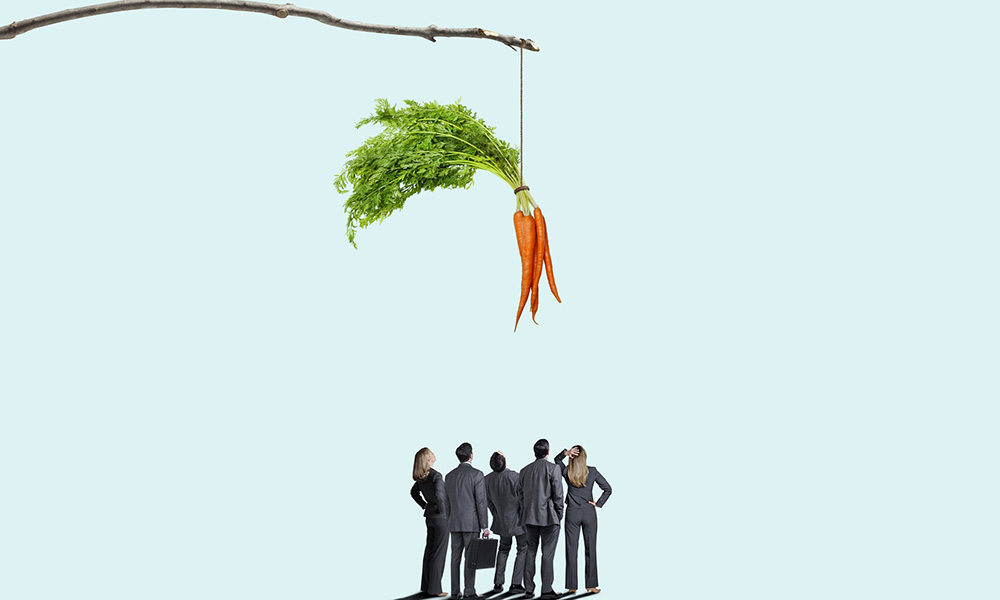“We tend to judge others by their behavior, and ourselves by our intentions.”
Think about your childhood. Regardless of the various things you may have done wrong, my guess is that in most cases your parents forgave you (after the occasional bouts of anger or disappointment). They saw eventually that your intentions were not wrong but you exhibited the wrong behaviour.
So, what should you do when your team members err? Should you bear a grudge? Should you settle scores? Or should you find a way to forgive them if their intentions are noble?
A few months ago, I had written about feedforward, which is about not dwelling on the past but instead focusing on the future. In that spirit, my message this week is about learning to forgive and move forward.
In an INSEAD working paper, Manfred F. R. Kets de Vries, efficiently sums up why leaders must learn to forgive:
‘Forgiveness is one of the factors that differentiates exceptional from mediocre or ineffective leadership. When leaders forgive, they dissipate built-up anger, bitterness and the animosity that can color individual team and organizational functioning…. True forgiveness supports the retention of valued employees, allows greater creativity and innovation, leads to increased profitability, and generates greater openness to change.’
A strong leader knows the value of forgiveness and practices it meaningfully, setting the tone for a more positive, productive culture. Conversely, a leader who believes in tit-for-tat unleashes bitterness, pettiness and conflict that can bring down everyone around them.
Revenge is costly
To err is human—and wanting to get even is also human. Vengeance is an evolutionary impulse: our primitive ancestors used it to ward off attackers. However, times have changed and we have evolved. Revenge can sometimes be a swift deterrent, but it’s a shortcut, and the toll it takes on us—both personally and in an organisational context—is a heavy one.
Science says practicing forgiveness is actually good for your health: it lowers your blood pressure, boosts immunity, reduces stress, lets you sleep better, and even helps you live longer. By contrast, carrying a grudge causes all sorts of mental and physical health disorders. Engaging in vindictive behaviour increases strife, drags down productivity, reduces workplace satisfaction, and causes valuable employees to leave. Research shows that companies with a culture of forgiveness are more productive than those preoccupied with settling scores. Simply put, forgiveness is good for business.
Innovation needs failure
As leaders, why is it important for us to forgive mistakes? Shouldn’t we be aiming for perfection? The answer to that is: there is no such thing as perfection. Failure is inevitable; in fact, it is necessary for success. Without it, we cannot learn and grow, which means we will stagnate.
If we want to foster a culture of bold innovation and real growth, we must create a safe space for making mistakes. And that means we must learn how to forgive.
In his Harvard Business Review article, Forgive and Remember: How a Good Boss Responds to Mistakes, Robert Sutton outlines the relationship between failure, forgiveness and learning:
‘While informing your people that “failure is not an option” — in the famous phrase of Apollo 13 flight director Gene Kranz — might be useful on occasion for inspiring exceptional effort and resourcefulness, it sends a dangerously wrong signal. True, no one should choose the option of failure deliberately, but trying especially hard to avoid it means taking no chances on change. The better message to get across is that failure is a by-product of risk-taking, and honest mistakes will be forgiven.
That may sound like obvious good sense, but consider how rare it is in large organizations rife with personal ambitions, politics, and scapegoating. If people perceive that the best way to look good is to make others look bad, then mistakes are seized upon, the venturesome are humiliated, and a climate of fear takes hold. People engage in CYA behavior, and the game becomes avoiding the finger of blame rather than surfacing, understanding, and learning from failures.’
Forgive does not equal forget
An environment that makes it okay to fail and learn from it is integral to business success—however, this doesn’t mean erasing the memory of all mistakes. Sutton also highlights the importance of forgiving but remembering:
‘In most settings, forgiving and forgetting, while temporarily comforting, condemns people and systems to make the same mistake again — sometimes over and over…. You forgive because it is impossible to run an organization without making mistakes, and pointing fingers and holding grudges creates a climate of fear. You remember — and talk about the mistakes openly — so people and the system can learn…. A vital difference between good and bad bosses is that the former consider it their responsibility to surface and learn from past setbacks, errors, and failure.’
At the same time, it is vital for us, as leaders, to distinguish between mistakes that matter (and should thus be remembered) and those that don’t (and should thus be forgotten). For instance, if an employee makes a key data-related error that leads to incorrect assumptions, this could be an opportunity for learning—how do we prevent such mistakes in the future? What processes can we put in place to ensure accuracy of data? On the other hand, if someone arrives late to work one Tuesday, this is certainly not a mistake to be brought up for the next several months! Highlighting every minor misstep doesn’t lead to growth; rather, it erodes a person’s confidence and depletes productivity.
Let go to move ahead
As long as we live in the past, we cannot truly advance. We get stuck in one bad experience, unable to go anywhere else. Forgiveness frees us of that burden and enables us to move forward. This will not change the past, but it does mean you get to take control of tomorrow.
Nelson Mandela is an amazing example of someone who embodied forgiveness. He showed the world that revenge is not the answer. After spending 27 years in prison in his fight against apartheid, he chose to forgive those who had committed so many crimes against him, so that South Africa could be united and rebuilt on a new foundation.
If leaders are able to overcome the temptation to settle scores with those who are on the “other side”, they open up new ways of moving forward and create the foundation for a brighter future. This is particularly relevant at times of transition; think structural changes, key strategic decisions, mergers, and new leadership. In tough situations such as these, we must practice the art of forgiveness for ultimate success. Harnessing the power of reconciliation helps us build forward-looking teams that are continually learning.
Practice makes (im)perfect
Like any skill, forgiveness calls for discipline and practice. Forgiving someone—and asking for forgiveness—can be uncomfortable. It can make us feel weak and vulnerable, but it is important to remember that both real forgiveness and genuine apologies come from a place of great personal strength. Here are six suggestions to help you cultivate forgiveness:
- Reflect: Consider the ways in which holding a grudge or seeking revenge is harmful for you. Could you use that energy in a better way? Is it really worth it to carry the weight? If you’d like to introspect, I recommend spending a few moments filling in the Heartland Forgiveness Scale.
- Empathise:This step is difficult for many of us. Try to look at the situation from the other person’s point of view. Put on their shoes, so to speak, and walk a mile in them. Are you able to understand where they may have been coming from? (Keep in mind that it is not necessary to agree with them.)
- Share:Express how you feel directly to the other person. Remember to focus on the behaviour, not the person, i.e., what they did, not who they are.
- Forgive:Decide to forgive—and just do it. Let go. This requires us to give up our dominant role, which is why it can be deeply uncomfortable. But remember, the ability to forgive is in itself a superpower.
- Apologise:Is it possible that you shared in the blame? Even just a little bit? If yes, take accountability and apologise. I won’t lie—it’s going to be hard. But as leaders, we must model the behaviours we wish to see in others.
- Forgive circumstances:Sometimes we get angry at situations that aren’t anyone’s fault as such, such as economic turmoil, illness, etc. Here, no one is to blame, yet we continually dwell on these situations and blame them. Let go of these negative feelings so you can look ahead.
I’d like to leave you with a beautiful Spanish tale that Ernest Hemingway mentions in his short story, The Capital of the World: A father and son become estranged and the son, Paco, runs away from home. His father looks for him for months but is unable to find him. Finally, the desperate father places an ad in the newspaper: PACO MEET ME AT HOTEL MONTANA NOON TUESDAY ALL IS FORGIVEN PAPA. On Tuesday, 800 Pacos show up, looking for their fathers’ forgiveness.
As always, I look forward to your thoughts.








An awesome read again, Vivek. Thanks!